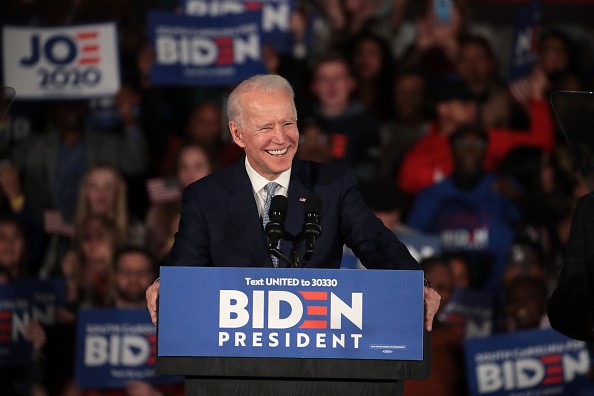Five Key Points in Joe Biden's Economic Plans After Election

Democrat Joe Biden won this year's election, and his bold economic plans more than offset the drawbacks of taxes and regulations, said top economists.
He will become the 46th president of the United States in January after defeating incumbent President Donald Trump.
With the pandemic having the country reeling to get back up, Biden is already working at a disadvantage, noted BBC.
But USA Today said Biden's economic plans could bring back 11 million jobs and $670 billion in GDP.
Analysts also believe he could even work faster on the issue than Trump, who has been touting his economic plans and accomplishments throughout his campaign.
Biden has already laid out his policy and economic plans during his campaign.
Here are five key points in Biden's economic ambitions:
Stimulus Package
Biden has already expressed support for a robust relief measure.
The package will have unemployment benefits, aid for small businesses and states and another round of stimulus checks.
The only thing that comes in between this is the Senate.
A $1.5 trillion stimulus package will likely materialize by the end of 2020 if Republicans keep control of the Senate, said Moody's Analytics and Oxford Economics.
But if Democrats gain back control, a $2 trillion package can be expected.
According to The Guardian, Biden plans to implement an Emergency Action Plan to Save the Economy during the early days of his presidency.
Climate Change
This spring, Biden offered a sweeping proposal to tackle the issue of climate change.
According to BBC, is has been described as the most ambitious plan put forward by an American presidential candidate.
The plan aims to achieve a 100% clean energy economy in the U.S. by 2035 with net-zero emissions no later than 2050.
Investments will also be made on renewable energy research, pollution regulations, and others.
Republicans believe the economic plan on environment itself will "bury' the economy, but was still a turnaround from the Trump administration's actions on climate change.
Taxes
Liberals have pressed for higher taxes on the rich as income inequality was at its highest in the past 50 years or so.
And this proposal garnered wide support among the public.
Part of his plan was to raise corporate tax from 21% to 28%. A minimum tax will also be imposed on foreign earnings of U.S. companies located overseas.
There are more aspects to the plan, but outside groups believe it could raise $3 trillion or more over the next decade.
Republicans are also likely to attack these plans, particularly the individual tax hikes and only corporate tax increase will pass, said Mark Zandi, chief economist of Moody's analytics.
Oxford economist Gregory Daco also thinks the GOP will rebuff the expanded payroll tax and will only agree to a 24% hike on corporate tax.
Big Tech
Big tech in the U.S. is also under major scrutiny.
Politicians, both left and right, have called for tougher rules in consumer privacy and competition among these kinds of companies.
According to BBC, Biden will likely back the break-up of these companies only as a "last resort."
Generally, Biden has kept relatively quiet on tech.
It is important to note that vice-president elect Kamala Harris hails from California, and will likely be seen by the tech industry as a friend than a foe, said CNET.
Trade Wars
Probably one of the issues Trump usually threw at Biden was the North American Free Trade Agreement in 1994.
"Michigan lost half of its auto jobs thanks to Biden's Nafta and China disasters," Trump said in Michigan before the election.
Even though "Uncle Joe" is seen as less divisive when it comes to the world stage, free trade isn't part of his plans.
In a September interview with CNN, he said: "We will not purchase anything that is not made in America."
It was a "Buy American" plan, seeking to increase government spending on US-produced goods, services and research.
When it comes to trading with foreign bodies China, it seems Biden and Trump are on the same page.
Biden also promised "aggressive" action against China and few expect him to remove tariffs that Trump imposed during his trade war anytime soon.
So it seems the Chinese will not be expecting favors even after the Biden win.
Subscribe to Latin Post!
Sign up for our free newsletter for the Latest coverage!
© 2026 Latin Post. All rights reserved. Do not reproduce without permission.














